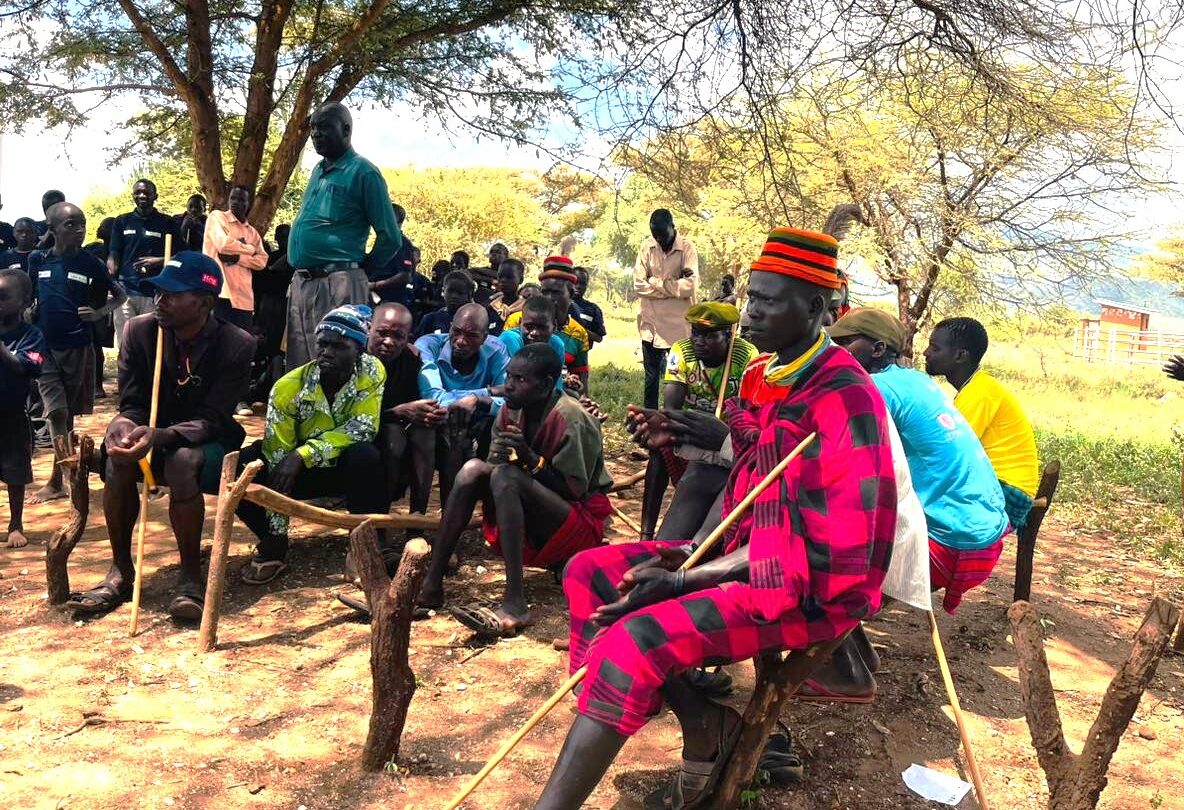Strategies for change
To work towards a social norm against all forms of child labour among all stakeholders – communities, governments and businesses – WNCB implements integrated strategies for change: strengthen child protection systems, strengthen quality education, support economic empowerment of youth, ensure Children’s Rights and Business strategies and evidence-based lobby and advocacy.
Area-based approach
The basis for these strategies is the area-based approach, which means concentrating on protecting the rights of all children in an area, addressing the root causes of child labour, strengthening local child protection systems, and working towards the norm that that no child should work and every child should be in school. No distinction is made between different forms of child labour; every child is entitled to education. The focus is not only on child labour in specific sectors or the worst forms of child labour, but on all children who work and do not go to school.
Teachers, local authorities, village leaders, employers/businesses, parents and children work together to get children out of work and into school. If everyone takes their responsibility, this is possible. Activities are initiated within existing community groups, in cooperation with local authorities and employers, to ensure the rights of all children.
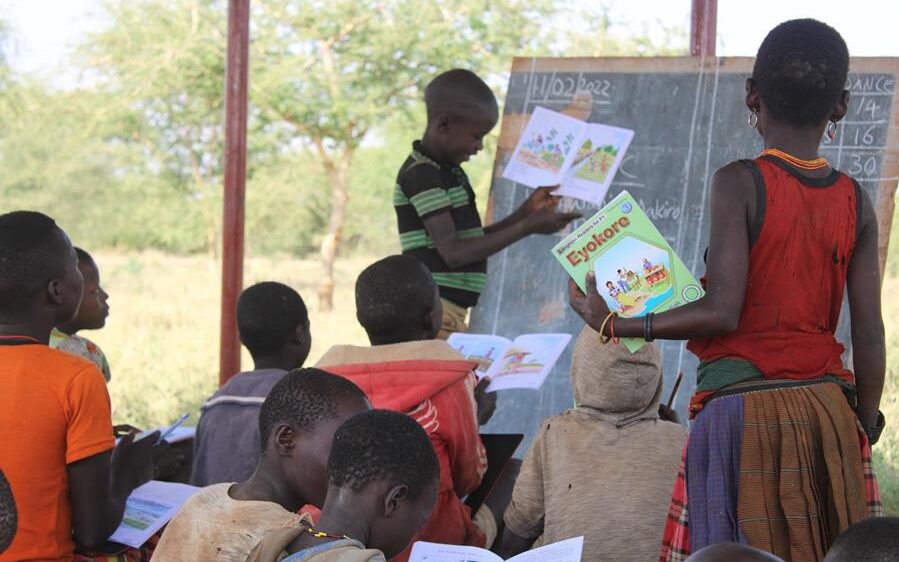

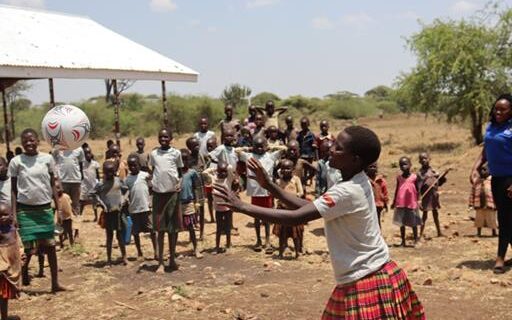
Implementing strategies in Karamoja
The story of the strong cooperation between the WNCB partners in Karamoja shows how working with the area-based approach proved to be useful and successful in the specific context of this region. The many challenges in Karamoja need to be addressed at community level. And at the same time, the lack of quality education and opportunities for youth need to be tackled. Cooperation with the government, the communities, teachers and the private sector is key in this challenging context. Working with these strategies, the WNCB partners had the space to work with and adjust elements in planning and action tat led to sustainable results.
Engaging with communities
The strategies in working with communities involve activities to eliminate child labour, economic strengthening of families and youth, the strengthening of child protection systems, access to quality education and vocational training, and awareness-raising towards norm change.
Working with parents
Through awareness creation, back to school campaigns, capacity strengthening, village savings and loans associations (VSLA’s), parents were convinced that children working is not good for their health and future perspectives.
Children empowerment through supportive communities
In the villages that fall within the area-based approach, the partners work with community mobilisation activities and awareness raising on the risks of child labour and the value of education. The partners construct child friendly spaces. Through these activities, children are being encouraged to stop working and to return to formal schooling.
The strategy is to engage all stakeholders in the area:
Activities to engage with community leaders, key influencers and the district leaders are organised to mobilise the communities to encourage children to go to school.
https://wncb.org/school-community-meetings-to-get-children-back-in-school/

“We have used several approaches and platforms to mobilize households and stakeholders to sign pledge cards against child labour. This has been used to create awareness and also generate commitments against child labour.”
– The communities of three villages – Acherer, Nakirolo and Nanyidik – are involved in setting up community schools, like contributing with local materials and land.
https://nrdou.org/newsroom/nanyidik-school-construction
– Children are being assisted with numerous activities that support them to return to school, or with vocational trainings, apprenticeships, and life skills trainings.
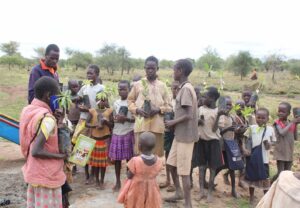
“Participation of children in the tree planting activities around the Nanyidik Motivational Center in Moroto district, has given them more interest in education and motivated them to keep showing up to school in order to water the trees they planted.”
– Teachers are trained in child-friendly teaching methods, in order to contribute to a child-friendly and gender-sensitive environment at existing schools.
Access to education and vocational training
During the COVID-19 pandemic, home-based learning was adopted by teachers. In Karamoja, the partners set up home learning centres where children attained the requisite knowledge. However, after the two-year lockdown and closing of schools due to the COVID-19 pandemic, a lot of children left school. Several ‘Go Back to School’ campaigns, including radio talk shows, community dialogues and other channels, are set up to reach the communities and get children back into school.
Talk show about child labour in Moroto
In the learning centres, children also receive life skills training and psychosocial support to their attitudes towards education. Special focus on this type of support is given to children that are withdrawn from child labour.
To provide youth with better opportunities for their future, youth are equipped with vocational skills at different training centres and apprenticeships in the community using a community-based skilling approach.
Training teachers
Teachers are trained in the areas of psychosocial support, gender, research, tracking and referral, using child-friendly teaching methods.
https://wncb.org/teacher-training-to-prevent-children-dropping-out-of-school/
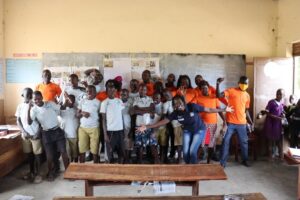
“Both teachers and students in a SCREAM session at Moruita primary school, Nakapiripirit teaming up in 3 groups to create a collage about child labour.”
Collaboration with the private sector
The private sector is acting as part of the community in the education of their children. Small-scale miners in Karamoja are being trained on Child Rights and Business Principles (CRBP), child safeguarding, and child labour issues.
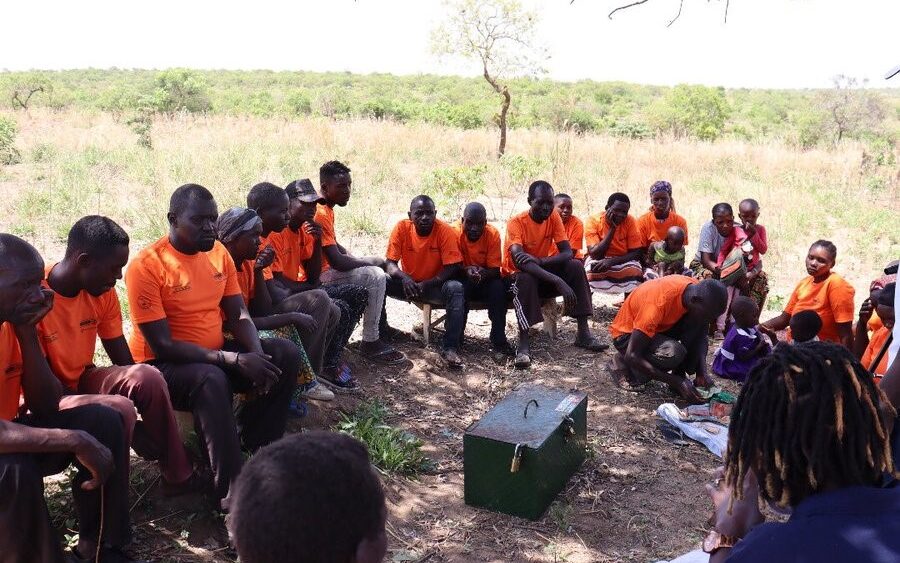
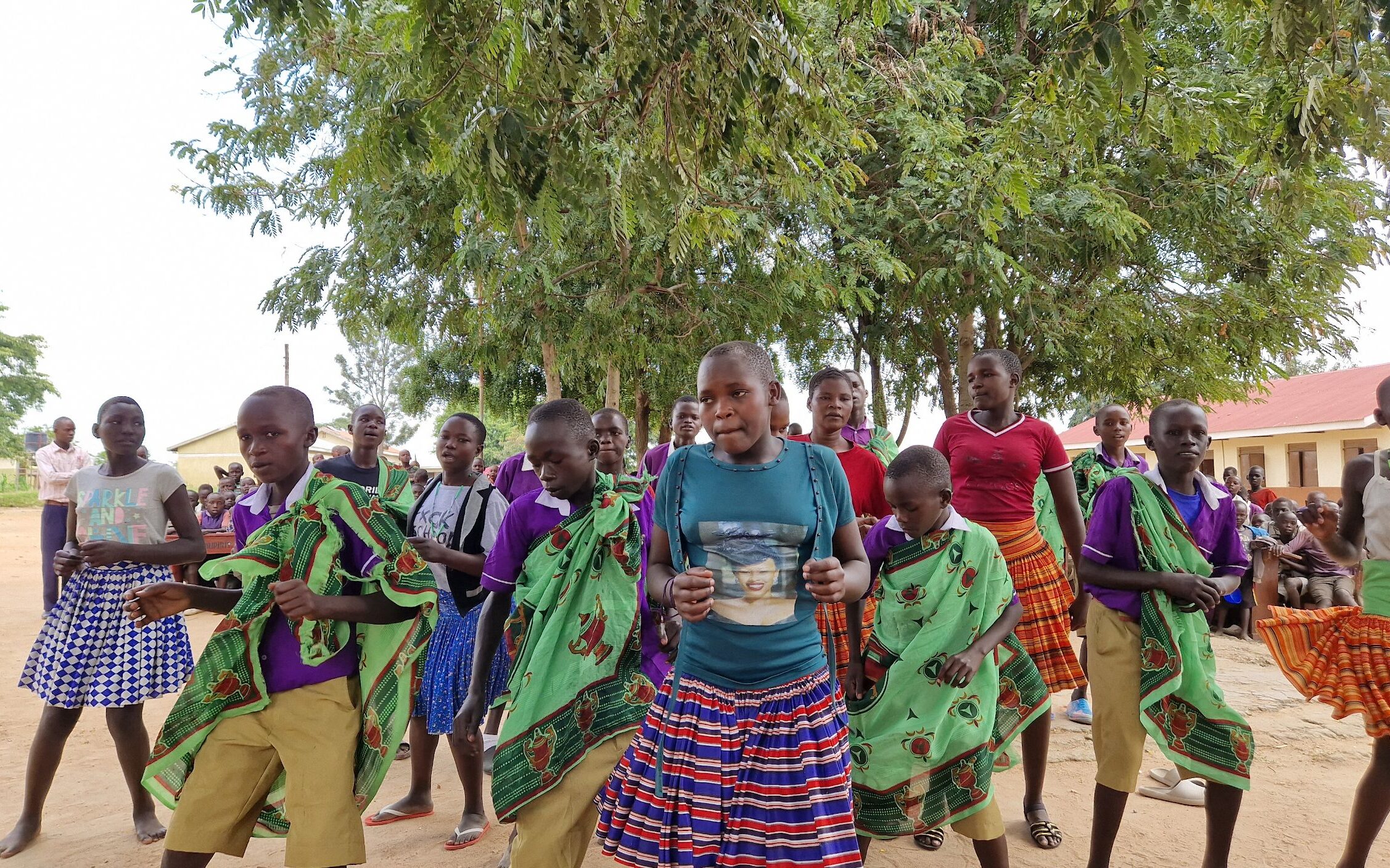

Engaging with governments
The partners in Uganda, led by Hivos at national level, cooperate with the different ministries on policies and by-laws to address the root causes of child labour. At regional and local level, the partners in Karamoja cooperate with the government in setting up community schools and establishing functional child welfare committees that strengthen the child protection mechanisms.
Child protection system strengthening
To strengthen the capacity of the community-based child protection structures, parasocial workers and mentors (mobilisers) in Karamoja are trained in case management, referral pathways and child participation. Also, cooperation with government and police officials is organised to improve on timely and effective responses to cases of child abuse.
Improving access to quality education
The partners in Karamoja cooperate with the government in setting up community schools and the placement of qualified government-paid teachers in some in Moroto and Nakapiripirit.

